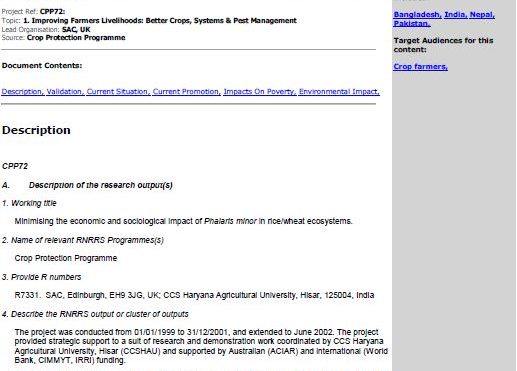Thousands of farmers in rice–wheat areas of the Indo-Gangetic Plains now practise reduced tillage to control the weed Phalaris minor. This pest was a major bottleneck in raising yields. Previously, farmers didn’t understand how long the weed seeds survived in the soil and what caused them to start growing. Now, they’ve stopped ploughing their fields because they know that this encourages the weed seeds to germinate. Farmers in Haryana State and Punjab, India, successfully used low tillage to control Phalaris. The technique has already spread throughout the Indo-Gangetic Plains in India, Pakistan, Nepal and Bangladesh. Besides curbing the weed, low tillage also reduces erosion, improves soil fertility and lowers input costs – fuel, farm machinery and labour.
Region: Bangladesh, India, Nepal, Pakistan
Date published:
2007
Published by:
Research Into Use
Type of resource:
Research output overview
Resource topic:
Grain
Project/Programme: Not specific
Pest/Disease: Phalaris
Pages:
6
File type:
PDF (681 KB)



